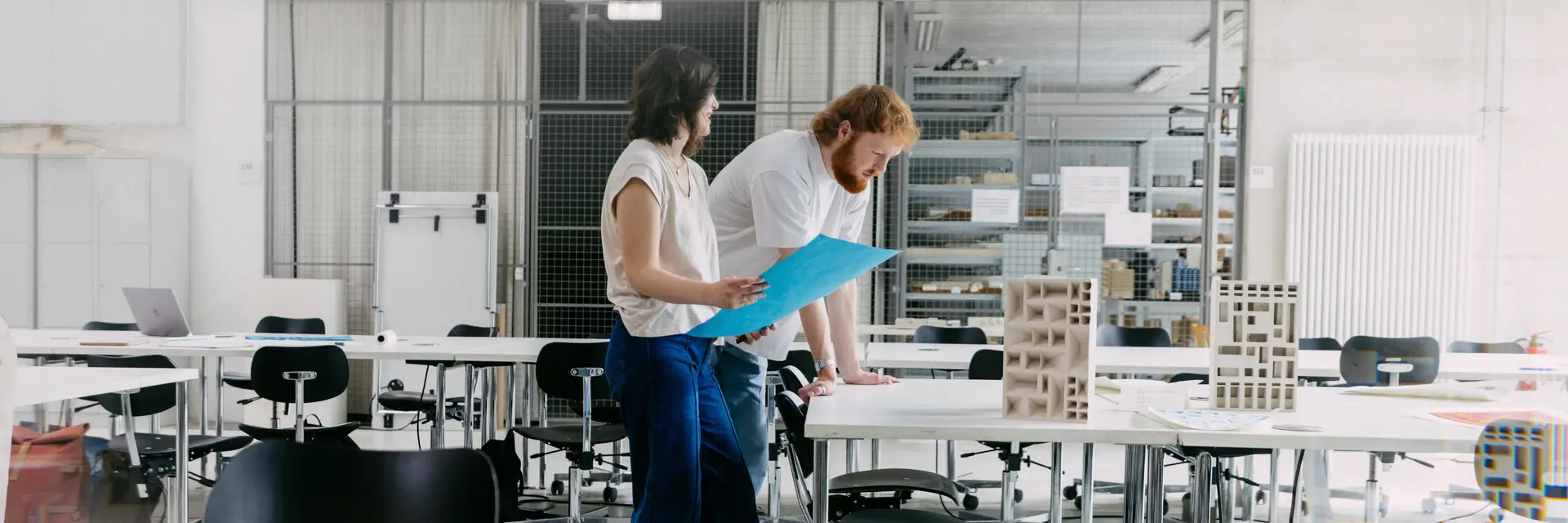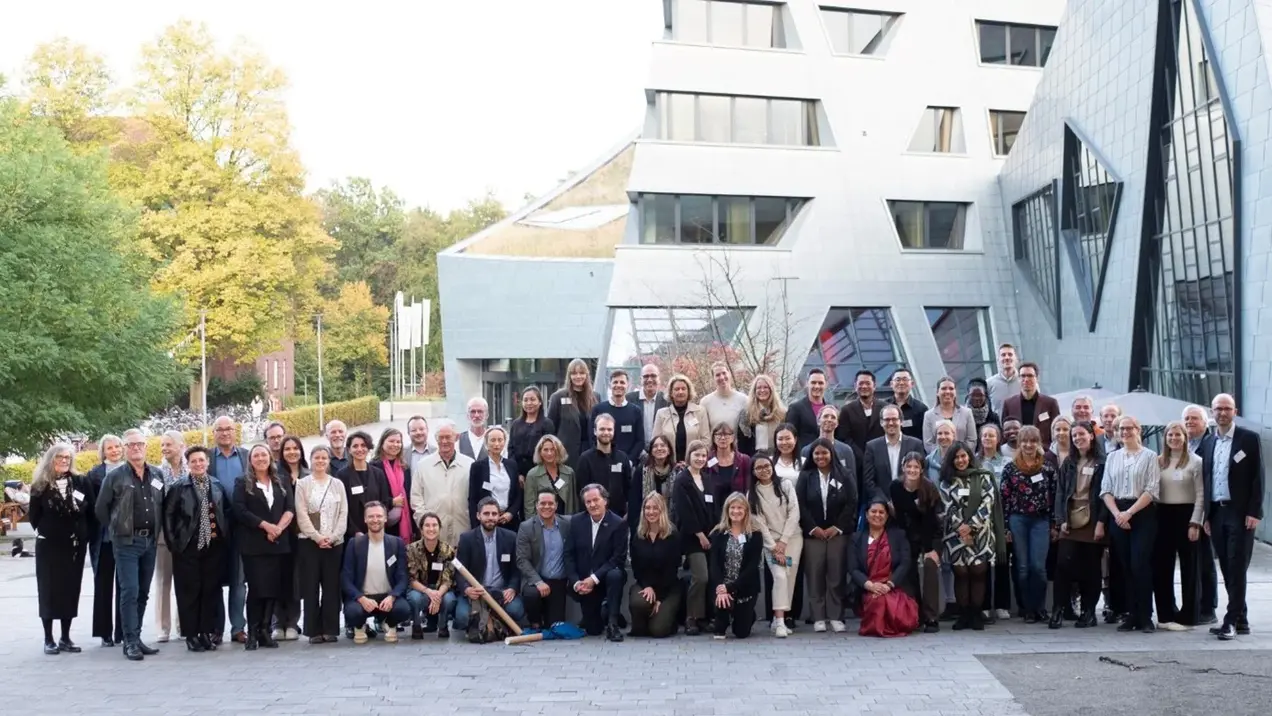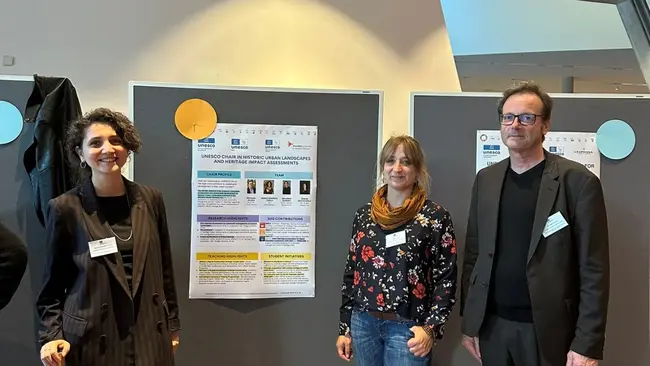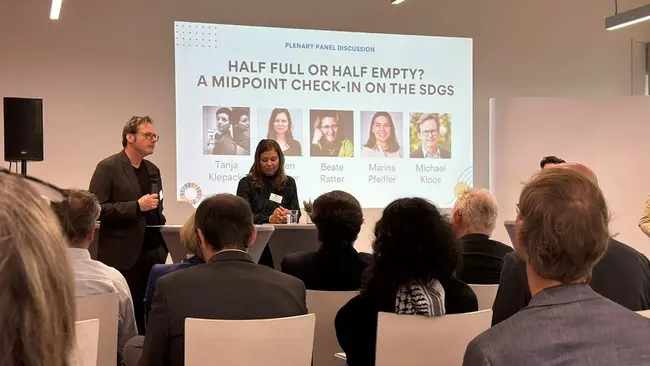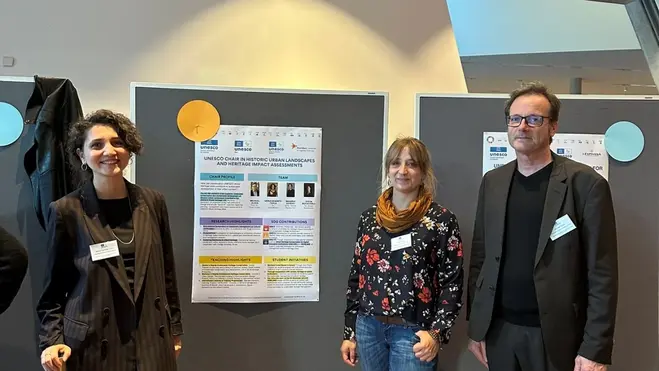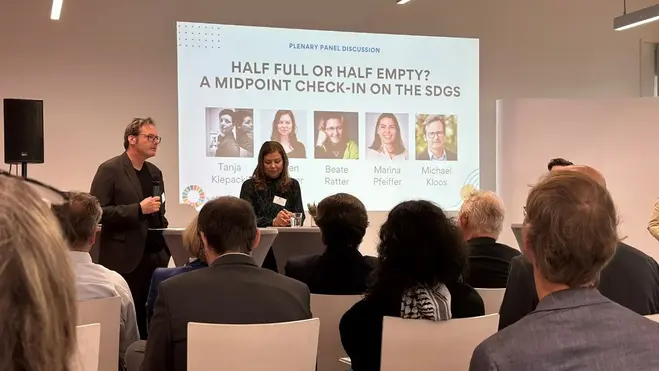From October 7 to 9, 2024, Leuphana University in Lüneburg hosted the international UNESCO Chairs Conference, an important platform for exchange and discussion on the role of the UNESCO Chairs Network and its international partners with regard to the Sustainable Development Goals (SDGs). The aim was to exchange ideas and discuss practical ways in which higher education institutions can improve their sustainability efforts and better align their programs with these goals.
The UNESCO Chair "Historic Urban Landscape and Heritage Impact Assessments" at Hochschule RheinMain was represented by Chairholder Prof. Dr.-Ing. Michael Kloos, Chair Coordinator Dr. Merve Demiröz Torun and Hjördis Dall as student representative of the young researchers. Together, the delegation brought their approaches and experiences to the conference, presented a poster on the Chair's previous activities and strengthened the exchange with international partners. Under the motto "Halfway to 2030: UNESCO Chairs' perspectives on the SDGs", the conference participants reflected on the progress made so far and the existing challenges.
The conference opened with the question: "Is the glass half full or half empty?", putting participants in the mood for a critical discussion. Prof. Dr.-Ing. Michael Kloos moderated a plenary discussion panel on the interim status of the SDGs. This was followed by a varied program of keynote speeches, plenary discussions and group workshops in which the chairs and their international partners presented and discussed their different research approaches and teaching concepts in connection with the SDGs. Musical performances, a historical city tour and a visit to the nearby UNESCO biosphere reserve "Niedersächsische Elbtalaue" rounded off the program and made the topic of sustainability a practical experience. Special attention was paid to networking and dialog between experienced scientists and young researchers. The latter were represented at such a conference for the first time and took the opportunity to contribute their perspectives and demands. The young delegates emphasized the need to involve them more actively in research and suggested intensifying cooperation between students and UNESCO chairs in order to promote innovative concepts for a sustainable orientation at higher education institutions.
